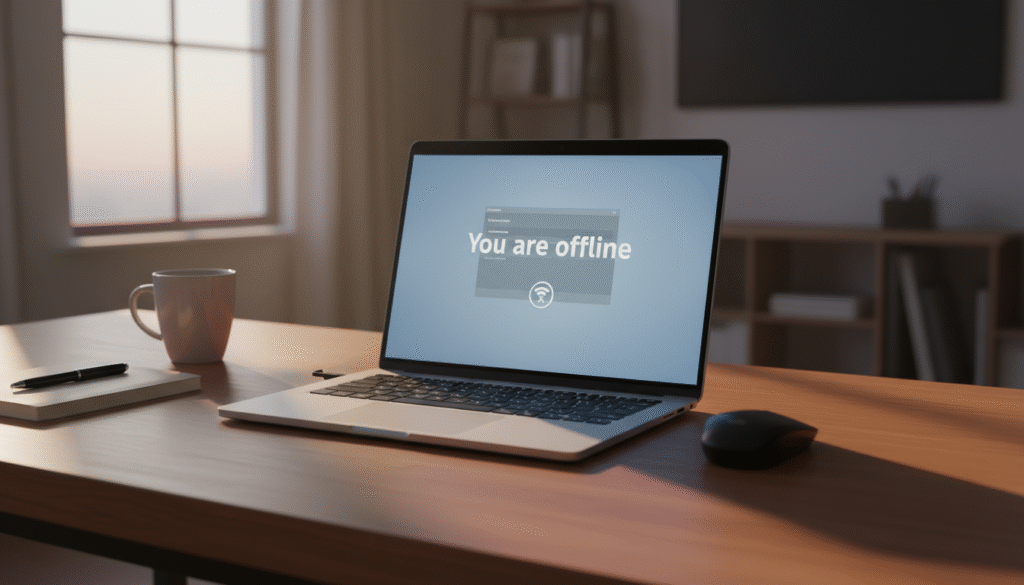Work Stress? Vanika’s Guide to Staying Sane in 2025
Let’s be honest: figuring out how to cope stress at work sometimes feels like trying to fix a leaky boat with a coffee cup. You’re bailing as fast as you can… and the water keeps coming. Emails, meetings, Slack pings, surprise deadlines—if stress were a person, it’d be the coworker who “just has a quick question” all day long.
If that’s how you’ve been feeling lately, you’re in the right place.
This isn’t going to be one of those robotic, “just practice gratitude and drink water” articles. We’re going to talk about how to cope stress at work in a way that’s human, honest, and actually usable when you’re tired, overwhelmed, and low-key considering a career in goat farming.
I’ll share practical strategies, a bit of science, and some real-life “yep, been there” moments. Think of this as advice from a friend who’s also had 47 tabs open—emotionally and in Chrome.
Why Work Stress Hits So Hard on Your Well Being (And Why You’re Not Just “Too Sensitive”)
First, let’s get something straight: if you’re struggling with work stress, it doesn’t mean you’re weak, dramatic, or “bad at adulting.”
Work stress is basically what happens when:
The demands on you > The resources you feel you have.
Demands can look like:
- Too many deadlines and not enough time
- People changing priorities every five minutes
- Confusing expectations (“own this, but also don’t make any decisions”)
- Difficult coworkers or managers
- Trying to be a decent human at work and at home without becoming a zombie
And resources? Those are things like:
- Time
- Energy
- Support
- Skills
- Control over your day
When that equation gets out of balance for too long, it turns into chronic stress. And if that goes on long enough, it can slide into burnout—that feeling of emotional exhaustion, zero motivation, and “I care, but I physically cannot care anymore.”
The World Health Organization actually recognizes burnout as a work-related condition. Research in journals like The Lancet and reports from NIOSH (the National Institute for Occupational Safety and Health) connect long-term work stress with anxiety, depression, and issues like high blood pressure.
Translation: you’re not “overreacting.” Your body and brain are reacting to real pressure.
Learning how to cope stress at work is not some luxury reserved for yoga influencers. It’s basic survival for modern humans with jobs.
Your Stress Check-In: Is Work Getting Under Your Skin More Than You Think?
Sometimes stress announces itself loudly: you’re crying in the bathroom at 11 a.m. That’s obvious.
Other times, it’s sneaky. It shows up as:
- Chronic tiredness. You wake up exhausted, go through the day exhausted, and by 9 p.m. you’re exhausted and scrolling.
- Brain fog. You reread the same sentence three times and still don’t know what it says.
- Short fuse. You’re snapping at your partner, kids, barista, and yes, yourself.
- Random body weirdness. Tension in your neck, clenched jaw, headaches, stomach issues. Your body’s basically filing a complaint.
- Overwhelm. You feel constantly behind, like you’re always playing catch-up and losing.
- Zero motivation. Work that used to feel meaningful now just feels like a list of chores.
- Sleep and appetite shifts. Too little sleep or too much, stress cravings or no appetite at all.
I’ve gone through seasons where I thought, “I’m just tired, it’s fine.” It was not fine. It was stress showing up with a fake mustache on.
One big part of how to cope stress at work is catching these signs earlier—before you hit the point where you Google “how much does it cost to move to a small island.”
What’s Actually Going On in Your Body When Work Stresses You Out
When something at work feels stressful—an angry email, a confusing project, a surprise “quick chat”—your brain decides, “This might be danger.”
So it hits the fight-or-flight button:
- Your heart beats faster.
- Your muscles tense up.
- Your breathing gets shallow.
- Stress hormones like cortisol and adrenaline kick in.
If a tiger were running at you, this would be perfect. The issue? At work, the “tiger” is your inbox… and it never stops.
So instead of a quick spike and then calm, your system stays activated: all day, every day. That chronic stress can:
- Mess with your immune system
- Make it harder to think clearly and remember things
- Increase blood pressure
- Leave you feeling wired and tired at the same time
This is why how to cope stress at work isn’t about “being chill.” It’s about teaching your body and brain how to turn the alarm down from DEFCON 1 back to “mildly annoyed human.”
Manage Stress by Fixing What You Can Control
You can’t fix everything about your job (if you can, please call the rest of us). But there’s usually more you can influence than it feels like when you’re overwhelmed.
Let’s start with the basics: your workload, your time, and your daily habits.
1. Tame the To-Do List Before It Eats You Alive
Ever look at your to-do list and feel like it’s less a list and more a threat? Same.
Here’s how I’ve learned to handle it (on good days, at least):
- Dump everything out of your head.
Projects, tiny tasks, half-formed worries—get it all down. Your brain is a terrible storage system. - Sort by importance, not just urgency.
Ask:- What actually matters for my role?
- What will truly move things forward this week?
- Pick a Daily Big 3.
Each morning (or the night before), decide:- “If I only complete three things today, which ones would make the day feel like a win?”
Those become your priority.
- “If I only complete three things today, which ones would make the day feel like a win?”
- Break big tasks into tiny moves.
Instead of “Write report,” write:- Outline sections
- Draft intro
- Fill in data
- Edit for clarity
Suddenly your brain goes, “Oh. I can do that.”
When it comes to how to cope stress at work, getting specific is your friend. “Finish everything” is overwhelming. “Write three bullet points for the intro” is doable.
2. Saying “No” Without Sounding Like a Jerk
One of the sneaky causes of stress? Saying yes to everything like we’re people-pleasing robots.
Part of how to cope stress at work is protecting your time without burning bridges.
You can say:
- “I’m at full capacity right now. I can take this on next week—does that still work?”
- “I can do this, but it’ll mean delaying X. Which would you rather I prioritize?”
- “I want to give this proper focus. My earliest realistic start is Thursday.”
You’re not being difficult. You’re being honest. And honestly? That often earns more respect in the long run.
I’ve had times where I said yes to everything to look “capable”—and ended up looking frazzled, missing deadlines, and needing extra help. Saying no sooner would’ve been kinder to everyone.
Tiny, Daily Stress-Relief Habits That Actually Work at a Desk Job
You don’t need to become a new person to learn how to cope stress at work. You just need small habits that fit inside your actual life.
3. Take Real Breaks (Not Just “Switch Tabs to Social Media” Breaks)
Scrolling isn’t a break; it’s just another kind of stimulation. Your brain never gets to exhale.
Try this instead:
- Work 25–50 minutes on one task
- Take a 5–10 minute break
- Repeat
On your breaks:
- Stand up and stretch your neck, shoulders, and back
- Look at something far away (not a screen)
- Get a drink of water
- Walk to the restroom the long way
- Do 10 slow breaths
There’s research suggesting that humans naturally work best in bursts with breaks—one study from the Draugiem Group found top performers often worked about 52 minutes and then took 17-minute breaks. The exact number doesn’t matter as much as the pattern: focus → pause → repeat.
Think of breaks as maintenance: you’re not being lazy, you’re preventing a mental system crash.
4. Use 60-Second Calm Buttons When You Feel Overwhelmed
You don’t need a meditation room with plants and soft music (though if you have one, I’m jealous). You just need something you can do at your desk without looking weird.
Two options I love:
Box breathing (4–4–4–4):
- Inhale through your nose for 4 seconds
- Hold for 4 seconds
- Exhale for 4 seconds
- Hold for 4 seconds
Repeat 4–6 times
The 5–4–3–2–1 reset:
- 5 things you can see
- 4 things you can feel (your feet on the floor, clothes on your skin)
- 3 things you can hear
- 2 things you can smell
- 1 thing you can taste
These help your body shift from “danger!” to “annoying email, but not actually danger.”
In 2014, a review in JAMA Internal Medicine found that mindfulness-based programs could reduce anxiety and improve mood. You don’t need the full program to get a little benefit—these micro-practices still nudge your nervous system in the right direction.
Food, Movement, and Sleep: The Boring Healthy Ways That Quietly Runs the Show

I used to roll my eyes when people said, “Maybe you’re just hungry or tired.” Then I realized… sometimes I was just hungry and tired.
If you want to know how to deal with stress differently and more easily, these three areas matter way more than we want them to.
5. Give Your Body Something Better Than Caffeine and Vibes
When you’re slammed, it’s incredibly easy to forget to eat or exist on coffee and snacks. But low blood sugar feels a lot like anxiety: shaky, unfocused, snappy. That just makes work stress feel 10x worse.
Some simple things that help:
- Don’t skip meals “because you’re busy.” You’re a human, not a laptop.
- Aim for protein + fiber + healthy fat at meals and snacks:
- Greek yogurt with nuts
- Hummus and veggies
- Eggs and toast
- Rice with beans and veggies
- Try not to rely on sugar all afternoon. The crash is real.
- Maybe set a reminder to eat lunch if you’re the “suddenly it’s 4 p.m.” type.
A 2014 paper in Nutrients pointed out that diets rich in whole foods (fruits, veggies, whole grains, lean protein) are linked with better mood and stress regulation. You don’t need perfection—just a little intentionality.
I’ve learned that half of my “I hate everything” moments are actually “I haven’t had a proper meal” moments in disguise.
6. Move. Exercise Regularly (Even If Gym Life Is Not Your Thing)
Movement is one of the quickest ways to shift how you feel. You don’t have to become a runner or buy special leggings.
You can:
- Take a 10-minute walk before or after work
- Walk while on a phone call
- Do a couple of stretches every time you get coffee
- Try a 5–10 minute YouTube stretch or yoga video at home
The American Psychological Association repeatedly highlights physical activity as a powerful tool for reducing stress and improving mood. It doesn’t have to be intense. The goal isn’t “fitness influencer”; it’s “slightly less tense human.”
7. Treat Sleep Like an Actual Priority (Not a Nice-to-Have)
I know, I know. You’ve heard “get good sleep” a million times. But if you’re serious about your overall health, this matters.
Some gentle, realistic ideas:
- Try to go to bed and wake up around the same time most days.
- Create a little pre-sleep ritual: maybe dim lights, no work talk, some stretching or light reading.
- If you can, stop the unhealthy habits – checking work messages late at night. Nothing says “bad dreams” like a 10:47 p.m. Slack.
- Keep your room cool and dark. Earplugs and eye masks are cheap but surprisingly helpful.
Lack of sleep makes stress feel louder. With enough sleep, the same situation can feel like “annoying but manageable” instead of “this is the end.”
Boundaries: The Part of Stress Management Nobody Teaches You
If your work day slowly bleeds into your night, weekend, and brain space, boundaries are your new best friend.
8. Create a Clear “Work Is On / Work Is Off” Moment
This is especially crucial if you work from home.
You can:
- Start your day with a ritual: coffee, 5-minute plan, and your most important task before checking email.
- End your day with a quick review:
- What did I finish?
- What are my top 3 tasks for tomorrow?
- Close tabs, shut laptop, leave workspace.
If you don’t have a separate office, even putting your laptop in a bag or drawer at the end of the day sends a physical signal: we’re done.
It’s a small thing. But it tells your brain, “Work mode is off now. You’re allowed to be a person.”
9. Let People Know When You’re Available (So You’re Not “Always On”)
Part of how to cope stress at work is managing expectations.
You can:
- Add your working hours and “typical response time” in your email signature or Slack bio.
- Use status messages like “Deep work—checking messages at 3 p.m.”
- Talk to your manager:“For my focus and mental health, I’m planning to be offline after 6 p.m. most days. If there’s ever something urgent after that, how would you like me to handle it?”
This doesn’t work perfectly in every job, I know. But having some structure is better than silently suffering in 24/7 availability mode.

People Are the Buffer: You Don’t Have to Cope With Work Stress Alone
Here’s something we don’t talk about enough: how to cope stress at work isn’t just about you changing your habits. It’s also about who you have in your corner.
10. Find Your “I Get It” People
You don’t need a huge circle. You just need a few humans who get you.
That might be:
- A coworker you can be real with, not just “living the dream!” polite
- A friend you can text “today was rough” without explaining everything
- A partner or family member who knows when to listen and when to make you laugh
There’s research in Health Communication showing that sharing stress with supportive listeners can actually reduce your stress response. Basically, venting to someone who cares isn’t just emotional—it’s biological relief.
Some of my favorite “how to cope stress at work” moments have been simple:
- A coworker saying, “Yeah, that deadline is wild. You’re not crazy for feeling overwhelmed.”
- A friend reminding me, “You are more than your job.”
- Someone sending a meme that makes me snort-laugh between meetings.
It doesn’t fix everything, but it makes the load feel lighter.
11. Mental Health Help: If Your Job Offers Support, Use It
A lot of workplaces have:
- Employee Assistance Programs (EAPs) for counseling
- Mental health or wellness benefits
- Workshops on stress, communication, or resilience
If you have access to those, using them is a smart part of handling what is causing stress in your workplace, not a sign you’re failing.
If you don’t have them, outside help is still an option—therapy, coaching, or support groups can do more for your stress than the 18th productivity app.
NIOSH and other organizations consistently push the idea that workplace stress needs both individual tools and systemic support. So it’s perfectly reasonable to ask for help on both fronts: from people you know and from professionals.
When Coping Isn’t Enough: Knowing When to Get Professional Help
Sometimes, stress stops being “just work is rough right now” and starts being “I don’t feel like myself anymore.”
If you’re:
- Feeling down or anxious most days
- Having physical symptoms that won’t go away
- Losing interest in things you used to enjoy
- Struggling to get out of bed or get through the day
- Having thoughts that scare you, like hopelessness or self-harm
…then one of the bravest things you can do is talk to a mental health professional.
A therapist, counselor, or psychiatrist can help you:
- Sort out what’s work stress vs. deeper stuff
- Build a customized plan for good stress management
- Decide if you need extra support like medication
- Navigate serious decisions, like changing roles or jobs
The National Center for Complementary and Integrative Health (NCCIH) highlights that combining things like therapy, mindfulness, and even practices like yoga or acupuncture can be really effective for chronic stress. It’s not one thing; it’s a toolkit.
Asking for help isn’t you “not coping.” It’s you taking your mental health seriously enough to get backup.
Making It Real: Your Simple, Personal Plan for Work Related Stress Management
Okay, we’ve talked about a lot. Let’s pull it together into something you can actually use starting this week.
Step 1: Name Your Top 2–3 Stress Triggers
Is it:
- Unrealistic timelines?
- Constant interruptions?
- Lack of clarity in your role?
- Too many meetings?
- A particular person?
Write them down. (Yes, really.) Just seeing them clearly helps.
Step 2: Choose 3 Small Actions for the Next 7 Days
For example:
- For workload:
- Start each day with a Daily Big 3.
- Break every big task into smaller steps before you start.
- For your body:
- Take one 10-minute walk each workday.
- Try box breathing once mid-morning and once mid-afternoon.
- For boundaries:
- Set a “no work messages after 7 p.m.” rule three nights this week.
- Do a 5-minute shutdown routine at the end of each day.
Step 3: Check In and Adjust (Without Beating Yourself Up)
At the end of the week, ask:
- What made even a tiny positive difference?
- What felt unrealistic?
- What’s one tweak I can make for next week?
Learning how to cope stress at work is not a one-week project. It’s more like learning a new language: awkward at first, smoother over time.
A Final, Honest Word: You’re Not Alone in This
Here’s what I really want you to know:
You’re not the only one googling work stress at midnight. You’re not the only one who feels guilty for not doing “enough” and exhausted from doing too much. And you’re definitely not the only one who’s thought, “Is it just me?”
It’s not just you.
You’re allowed to:
- Take breaks even if everyone else is grinding nonstop
- Say no to protect your health
- Choose sleep over “just one more email”
- Ask for help—from friends, from coworkers, from professionals
- Want a career and a life you actually enjoy
Figuring out how to manage stress at work isn’t about becoming perfect or never feeling stressed again. It’s about building enough tools, support, and self-respect that stress doesn’t get to run your whole life.
So maybe today, you start small:
- Take that 10-minute walk
- Eat an actual lunch, not just vibes
- Tell one person the truth when they ask how you’re doing
- Close your laptop at a reasonable time and trust that tomorrow-you will handle tomorrow
You don’t have to fix everything at once. You just have to care enough about yourself to take the next kind step.
And if nobody’s told you this yet today: you’re doing a lot more than you give yourself credit for.








2 Comments
Comments are closed.